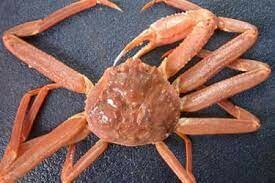It's been a long winter, but the calendar says spring has sprung. It doesn't look like it here in Portland, Maine, where Tuesday's storm brought the season's snowfall total in the city to 90 inches.
Still, signs of spring are there on the horizon. Daylight grows longer each day. Easter is upon us on March 31. And when April arrives, Our Beloved Boston Red Sox head to New York to begin a new baseball season. Nothing says spring like Red Sox vs. Yankees.
But I saw another powerful sign of spring in the process of compiling the Fishing Back When column for the May issue that will soon grace your mailbox. There's a wonderful photo in the May 1963 issue depicting a wharf crowded with wooden lobster traps belonging to one James Robbins of Stonington, Maine. The caption for the photo assures us that "Spring Means Wharves Crowded With Traps."
Alas, that didn't necessarily translate into traps crowded with lobsters, according to the story that accompanies the photo. Lobstermen who hauled traps through the winter as well as those who splashed pots at spring's arrival were getting 75 cents for counters. Unfortunately, the traps weren't yielding a lot of keepers.
Lobstermen were coming back from a day's work with but eight keepers out of 90 traps, the story says. Another harvester counted 14 keepers out of 100 traps.
A lack of lobster wasn't a problem for Maine harvesters last year. They racked up a record 123 million pounds of bugs in 2012 — some 18 million pounds more than landed in 2011. But an early glut of soft-shell lobsters helped send dock prices tumbling to an average of $2.68 per pound for 2012, the lowest price seen in almost two decades.
Hence, industry officials spent this winter developing ways to prevent prices from dropping again should they face another early glut of soft-shell lobsters. And the Marine Stewardship Council recently certified the Maine lobster fishery as a sustainable and well-managed fishery. The MSC blue eco-label could help new markets for the Maine product, like spring flowers, bloom.







